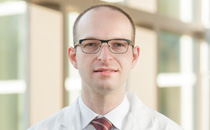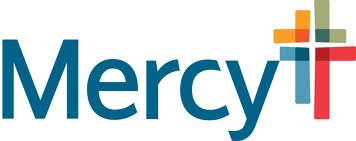 February isn’t just about hearts and roses. It’s also about hearts at risk. Because February is designated as American Heart Month, we’ve interviewed a leading Cardiovascular and Thoracic Surgeon at Mercy, Dr. Anton Cherney, to ask questions about three critical issues related to heart health — heart valve disease, aortic aneurysms and the most important tests you can get to make sure your heart is healthy.
February isn’t just about hearts and roses. It’s also about hearts at risk. Because February is designated as American Heart Month, we’ve interviewed a leading Cardiovascular and Thoracic Surgeon at Mercy, Dr. Anton Cherney, to ask questions about three critical issues related to heart health — heart valve disease, aortic aneurysms and the most important tests you can get to make sure your heart is healthy.
What is heart valve disease? What do valves in the heart do and how many are there?
The heart valves are crucial to the function of the heart. They open and close as the heart contracts, making sure the blood is flowing in the right direction. There are four valves in the heart: Aortic, Mitral, Pulmonary, and Tricuspid. Heart valves become diseased when they do not open fully and create resistance to blood flow. Sometimes diseased heart valves don’t close completely, allowing blood to leak back into the heart chambers.
What kinds of problems cause heart valves to malfunction?
Most of valve malfunction comes from normal wear and tear that happens as we age. Rarely, valves become infected or affected by rheumatic disease.
How are heart valve problems diagnosed? Are there usually symptoms?
If the valve disease gets bad enough, a person can experience symptoms of heart failure, including fatigue, shortness of breath, and leg swelling. There are multiple tests to look at heart valves, but the most commonly used test is an ultrasound of the heart called an echocardiogram.
What are the most effective treatments for heart valve problems?
The valves can sometimes be repaired. It is always best to have the valve repaired because this preserves the person’s own tissues. Sometimes the valves are damaged beyond repair and have to be replaced with an artificial valve or valve made from animal tissues.
What is an aortic aneurysm and how is it different from a brain aneurysm?
The aorta is the largest artery in the human body. Aorta carries oxygen-rich blood from the heart to organs and tissues. An aneurysm of the aorta forms when part of the aorta becomes enlarged or “balloons out.” Aortic aneurysm can lead to many problems, including rupture and internal bleeding. Aneurysms can affect other blood vessels in the body, including blood vessels in the brain.
Are there any warning signs that a person is about to experience an aortic aneurysm? Who is most at risk?
Patients affected by aneurysms of the aorta can experience chest, back, or abdominal pain, especially if the aneurysm has leaked or ruptured. Very often, however, these aneurysms do not cause any symptoms. Some people are genetically predisposed to develop an aortic aneurysm. These people have one of several inherited conditions where connective tissues in their body are weak.
How would an aortic aneurysm be treated if it’s caught in time?
Aortic aneurysms affecting part of the aorta called the Ascending Aorta (close to where it originates from the heart) are repaired with open surgery. Aortic aneurysms in other parts of the aorta can be repaired by less invasive catheter procedures.
With the use of modern testing techniques, can most heart attacks be prevented?
There are numerous tests that can detect coronary heart disease before it leads to a heart attack. These include Coronary Calcium Score and Exercise Stress tests. If coronary disease is found, it can be treated with medications, catheter procedures, or surgery, to prevent subsequent damage to the heart.
What are the most effective preventative heart screenings?
A Coronary Calcium Score involves a special type of a scan called a CT scan. It’s used for patients who are at increased risk of coronary disease but have not had symptoms. If the Calcium Score is abnormal, this will lead to further tests to establish the presence of coronary disease.
At what age should a person have the first screening? How often should a person have preventative screenings?
Currently, there is no exact age cut-off for Coronary Calcium Score screening. The screening test is recommended if a person’s calculated risk is more than 10%. The risk calculators take into account many factors including age, increased cholesterol, increased blood pressure, and family history of heart disease.
For more information about Dr. Anton Cherney and the Mercy Heart & Vascular Center, click HERE to visit the website. Dr. Cherney’s office is located at 2708 Rife Medical Lane, Suite 210, in Rogers, Ark. The phone number is 479-338-3888.

